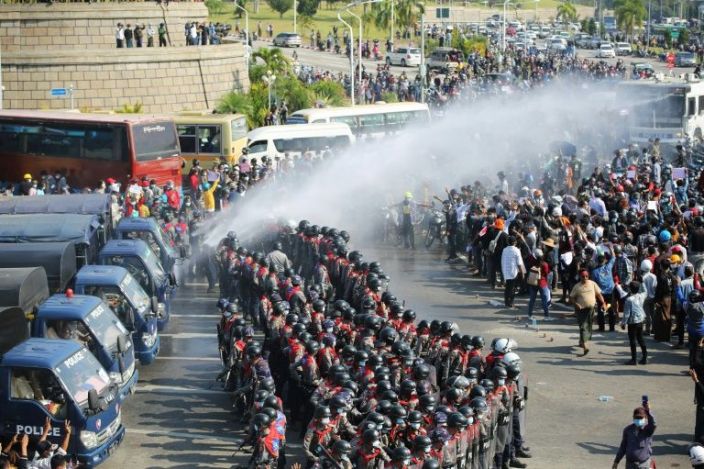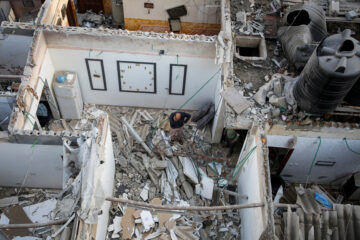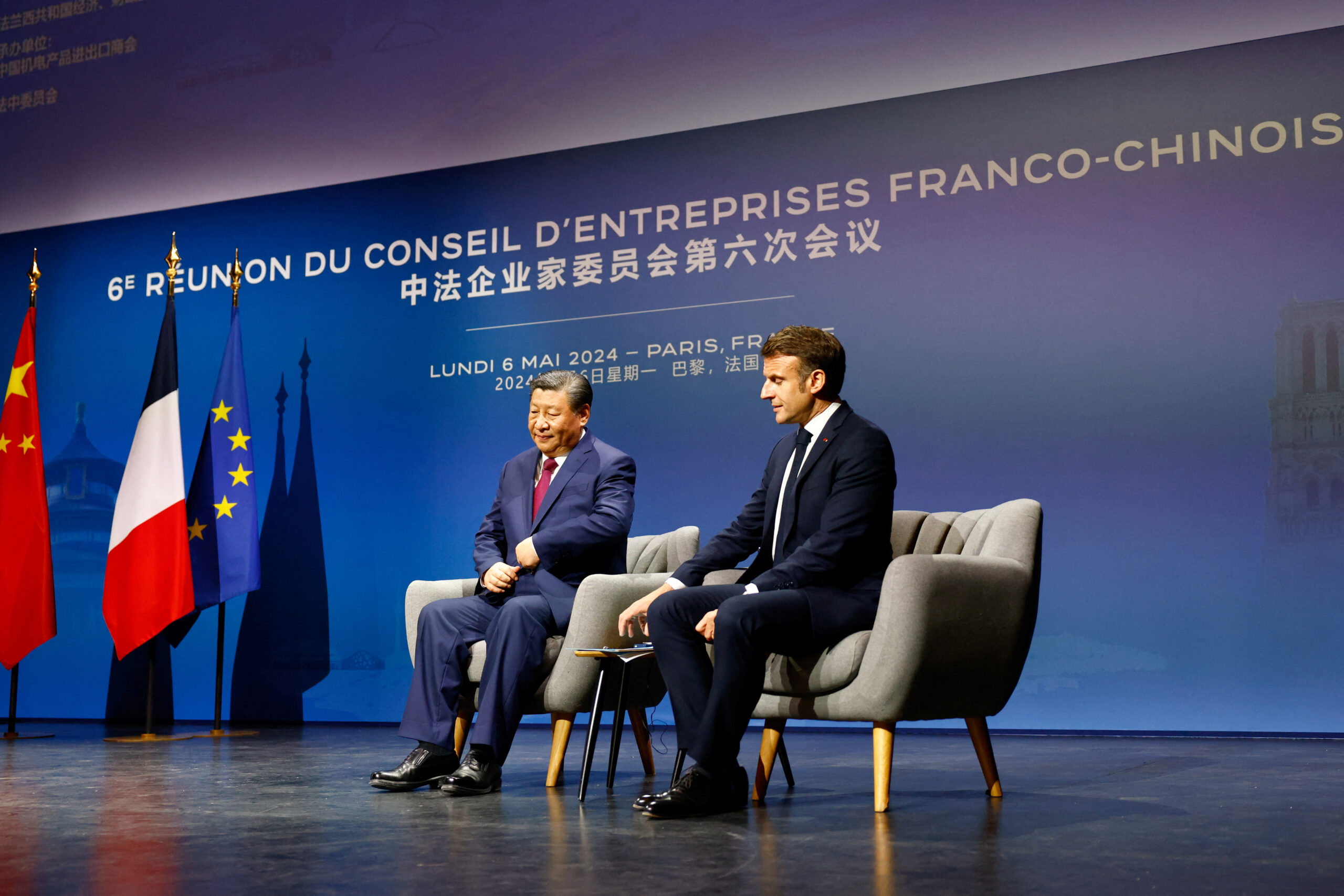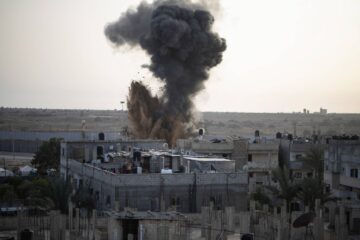Myanmar issues crackdown warning as rallies heap pressure on coup leaders
 The junta has so far refrained from using deadly force to quell the demonstrations sweeping most of the country. AFP
The junta has so far refrained from using deadly force to quell the demonstrations sweeping most of the country. AFPPolice turned water cannon on protesters in Myanmar’s capital on Monday as tens of thousands of people joined a third day of nationwide demonstrations against the military’s removal of elected leader Aung San Suu Kyi a week ago.
Calls to join protests and to back a campaign of civil disobedience have grown louder and more organised since last Monday’s coup, which drew widespread international condemnation.
“We health workers are leading this campaign to urge all government staff to join,” Aye Misan, a nurse at a government hospital said at a protest in the biggest city of Yangon.
“Our message to the public is that we aim to completely abolish this military regime and we have to fight for our destiny.”
Reuters has been unable to contact the junta for comment on the protests but state media signalled possible action against them in the first comment from any government channel, saying the public wanted rid of “wrongdoers”.
“We, the whole people who value justice, freedom, equality, peace and safety, not only refuse to accept the lawless wrongdoers but also request that they be prevented and removed through cooperation,” the MRTV television station said in a comment.
Though not attributed to any authority or group, it was later read out on a military-owned network.
Gatherings have been good natured and largely peaceful, unlike bloody crackdowns on previous protests, in 1988 and 2007 in particular. A convoy of military trucks was arriving in Yangon late on Sunday, raising fears that could change.
Earlier, police in the capital Naypyidaw fired brief bursts from a water cannon at a group of the protesters, video showed.
Thousands also marched also in the southeastern city of Dawei and in the Kachin state capital in the far north, the massive crowds reflecting a rejection of military rule by diverse ethnic groups, even those who have been critical of Suu Kyi and accused her government of neglecting minorities.
In Yangon, a group of saffron-robed monks, who have a history of rallying community action in the overwhelmingly Buddhist country, marched in the vanguard of protests with workers and students. They flew multicoloured Buddhist flags alongside red banners in the colour of Suu Kyi’s National league for Democracy (NLD), which won a landslide election in November.
“Release Our Leaders, Respect Our Votes, Reject Military Coup,” said one sign. Many signs were light-hearted while firmly opposed to the military intervention in politics.
The protests are the biggest since the “Saffron Revolution” led by monks in 2007, which led over subsequent years to the military’s gradual withdrawal from politics after decades of direct rule, a process brought to a jarring halt by the Feb. 1 coup.
CALL FOR STRIKE
In a development likely to worry the military, some government workers have been seen joining doctors and some teachers in rallying to the call for a campaign of civil disobedience and strikes.
“We request government staff from all departments not to attend work from Monday,” said activist Min Ko Naing, a veteran of the 1988 demonstrations that brought Suu Kyi to prominence.
The government lifted a day-long internet ban at the weekend. The block prompted even more anger in a country fearful of returning to the isolation and poverty before the transition to democracy began in 2011.
“Everyone uses social media and we copy what we see,” said Paing Soe Win, 26, at a protest in Yangon where people have been brandishing the three-finger “Hunger Games” salute, a symbol of defiance adopted from the Hollywood movie and copied around the region.
Suu Kyi won the Nobel Peace Prize in 1991 for campaigning for democracy and spent nearly 15 years under house as she struggled to end almost half a century of army rule.
The 75-year-old has been kept incommunicado since army chief Min Aung Hlaing seized power in the early hours of Feb. 1 to counter what the military said was widespread fraud in the Nov. 8 election. The election commission rejected complaints of fraud.
Suu Kyi faces charges of illegally importing six walkie-talkies and is being held in police detention until Feb. 15. Her lawyer said he has not been allowed to see her.
The daughter of the former British colony’s independence hero Aung San, Suu Kyi remains hugely popular at home despite damage to her international reputation over the plight of the Muslim Rohingya minority.
While Western governments have condemned the coup, there has been little in the way of concrete action to press the generals.
The U.N. Security Council has called for the release of Suu Kyi and other detainees and the United States is considering targeted sanctions.
Australia condemned the coup and demanded the immediate release of a citizen who was working as an economic adviser to the Suu Kyi government, who was arrested over the weekend. [L1N2KE09G]
“Protesters in Myanmar continue to inspire the world,” Thomas Andrews, the U.N. special rapporteur on Myanmar, said on Twitter.
“Myanmar is rising up to free all who have been detained and reject military dictatorship once and for all. We are with you.”
SOURCE: REUTERS










